Picture this: A rural clinic cuts administrative costs by 35% without firing a single employee. How? AI agents.
Meanwhile, your hospital drowns in paperwork, staffing shortages, and billing errors. The gap isn’t just growing it’s costing you patients and profits.
But here’s the good news: AI isn’t about replacing humans. It’s about freeing them from burnout-inducing tasks so they can focus on what matters care.
From chatbots handling patient queries to predictive tools slashing inventory waste, the proof is everywhere. Ready to stop bleeding cash and start thriving?
AI Agents for Healthcare Business: The New Efficiency Boosters
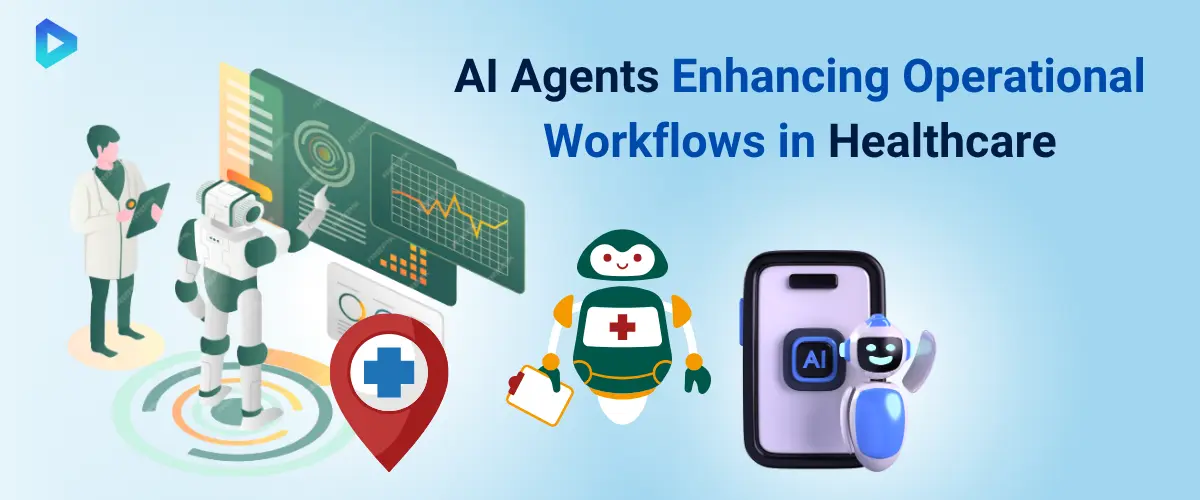 Imagine your healthcare practice running smoother while cutting costs - that's what AI agents deliver. These digital helpers are revolutionizing the delivery of care.
Imagine your healthcare practice running smoother while cutting costs - that's what AI agents deliver. These digital helpers are revolutionizing the delivery of care.
What Are Healthcare AI Agents?
Healthcare AI agents are like having an extra team member who never sleeps, never gets tired, and learns constantly. They handle the repetitive tasks that drain your staff's time and energy.
Healthcare AI agents are intelligent software systems designed to perform tasks traditionally handled by humans. They can schedule appointments, manage patient records, and even assist in diagnostics. By leveraging machine learning and natural language processing, these agents adapt to various healthcare environments.
What makes them special:
- They understand natural language - patients can speak normally.
- Work 24/7 - answering questions even at 2 AM.
- Get smarter with each interaction.
Take "Maplewood Pediatrics"—their" AI agent handles 80% of routine inquiries, letting nurses focus on sick children instead of phone calls.
How AI Agents Reduce Overhead Costs?
AI agents tackle the hidden expenses that bleed healthcare budgets dry. They're like financial superheroes for your practice.
A study by McKinsey & Company found that AI could automate up to 45% of administrative tasks in healthcare, potentially saving $150 billion annually. These efficiencies allow healthcare providers to allocate more resources to patient care, enhancing overall service quality.
See the savings:
- Staff time: Cuts administrative work by 30-50%
- Errors: Reduces billing mistakes by up to 90%
- No-shows: Decreases missed appointments by 25% with smart reminders
"City General" saved $18,000 monthly just by using AI for insurance verification - that's two extra nurses they could hire!
Key Benefits of Adopting AI in Healthcare
Beyond saving money, AI agents transform the entire care experience:
- Happier patients: Faster responses and shorter wait times
- Less stressed staff: More time for meaningful patient care
- Better outcomes: AI catches patterns humans might miss
At "Riverside Clinic" AI helped identify high-risk patients 40% faster - literally saving lives while saving money.
The bottom line? AI agents aren't replacing healthcare workers—they're giving them back the time to be healers instead of paperwork processors. Isn't that what healthcare should be about?
AI Agents Use Cases That Slash Healthcare Costs
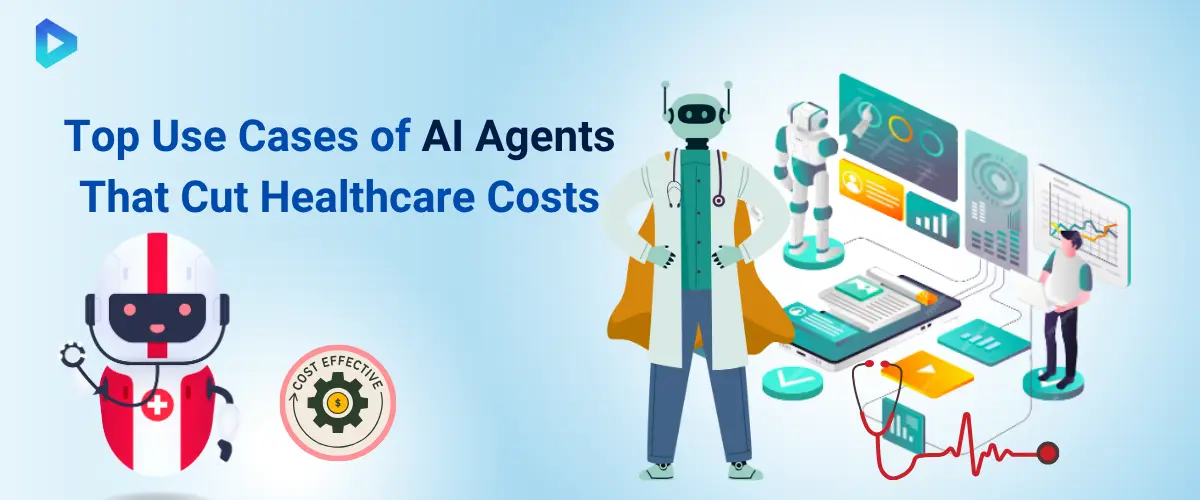 AI isn't just futuristic tech - it's already cutting healthcare costs today in ways that will surprise you. Here's where it makes the biggest impact on your bottom line.
AI isn't just futuristic tech - it's already cutting healthcare costs today in ways that will surprise you. Here's where it makes the biggest impact on your bottom line.
Automating Patient Scheduling & Reminders
Missed appointments cost US healthcare a staggering $150 billion annually - a financial hemorrhage AI agents can staunch. These digital assistants transform schedulingAI agents are like having extra staff that never call in sick by:
- Intelligent calendar matching: Analyzing patterns to optimize provider schedules
- Personalized reminders: Sending SMS/email alerts in patients' preferred languages
- Dynamic rescheduling: Automatically filling cancellations from waitlists
At "Metro Dental Group", their AI scheduler handles 85% of appointments, reducing no-shows by 38% and reclaiming $72,000 annually in previously lost revenue. The system even predicts which patients need extra reminders based on past behavior.
Streamlining Claims Processing & Billing
The average medical practice wastes 14% of revenue on denied claims. AI agents attack this problem through
- Real-time eligibility checks: Verifying coverage during patient check-in
- Error detection: Flagging 92% of potential claim issues before submission
- Automated follow-ups: Chasing payments without staff intervention
"Sunrise Community Clinic" deployed AI claims processing and saw remarkable results:
✓ Denials dropped from 18% to just 3%
✓ Average reimbursement time fell from 14 days to 2.5 days
✓ Staff productivity increased by 30%
Their billing specialist reported, "I went from fighting paperwork to actually helping patients".
Optimizing Inventory & Supply Chains
Hospital supply chains waste 25% of spending through inefficiencies. AI agents bring surgical precision to inventory management by:
For Medications:
- Predicting usage patterns based on historical data
- Automating reorders before critical shortages occur
- Tracking expiration dates to minimize waste
For Equipment:
- Monitoring usage patterns across departments
- Preventing over-purchasing of underutilized items
- Optimizing sterilization schedules
"Community Regional Hospital" achieved:
✓ $250,000 annual savings on pharmaceutical waste
✓ 98% in-stock rate for critical supplies
✓ Elimination of last-minute rush orders
Their materials manager noted, "We used to constantly juggle shortages and surpluses. Now our AI tells us exactly what we need and when."
These transformative results aren't exclusive to large hospitals - small practices see proportional benefits. The question isn't whether you can afford AI, but how much longer you can afford to operate without it. What would these savings mean for your organization's financial health?
What are the Different Types of AI Agents in the Healthcare Sector?
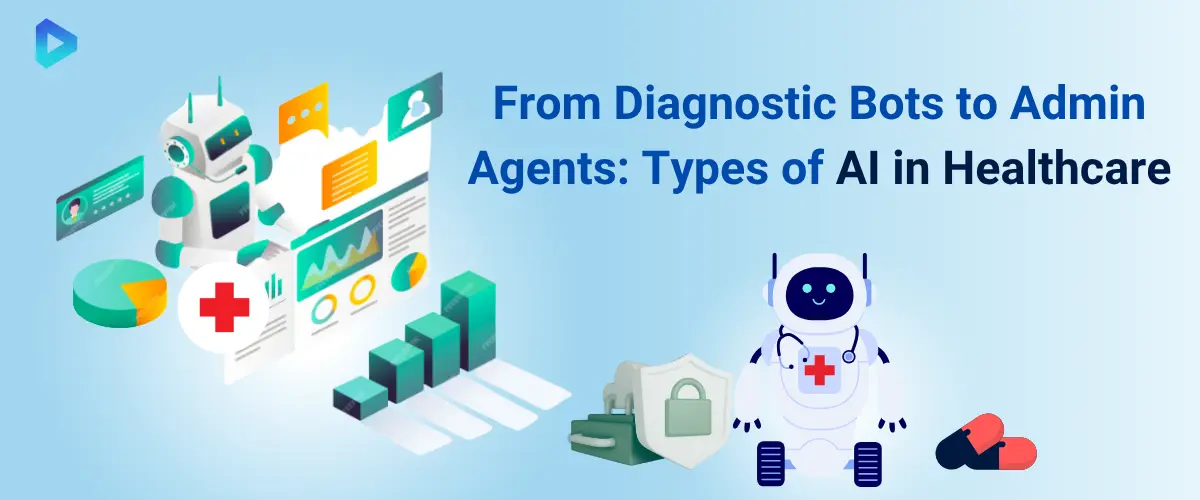 AI agents come in different flavors, each tackling unique healthcare challenges. Let's explore the most impactful ones revolutionizing patient care and operations.
AI agents come in different flavors, each tackling unique healthcare challenges. Let's explore the most impactful ones revolutionizing patient care and operations.
Reactive Agents for Immediate Response Tasks
These AI agents act like lightning-fast medical assistants, handling time-sensitive tasks without hesitation. They excel at:
- Triage chatbots that assess symptom urgency.
- Medication alerts flagging potential interactions
- Emergency room flow optimization
"City General ER" reduced patient wait times by 40% using reactive AI that prioritizes cases based on vital signs streaming from wearables. The system updates recommendations every 30 seconds as conditions change.
Decision-Making Agents for Diagnostic Assistance
More thoughtful than reactive agents, these AI partners analyze complex medical data to support clinicians:
- Radiology image analysis detects tumors that human eyes might miss
- Treatment plan suggestions based on the latest research
- Risk assessment tools predicting complications
At "OncoCare Centers", their diagnostic AI spotted early-stage lung cancer in 12% of scans originally cleared by radiologists - potentially saving dozens of lives annually through earlier intervention.
Predictive Analytics for Resource Allocation
These forward-thinking agents forecast needs before they arise:
For Staffing:
- Predicts patient surges to optimize shift scheduling
- Reduces nurse overtime costs by 25-35%
For Supplies:
- Anticipates medication demand spikes
- Prevents both shortages and wasteful overstocking
"Regional Children's Hospital" uses predictive AI to:
✓ Prepare for seasonal asthma attacks
✓ Reduce vaccine waste by 60%
✓ Maintain ideal nurse-to-patient ratios
Their COO reports: "It's like having a crystal ball for hospital operations."
Each agent type brings unique strengths - together, they're transforming healthcare from reactive to proactive care. Which could make the biggest difference in your organization?
AI Agents Automation: Where the Biggest Savings Hide
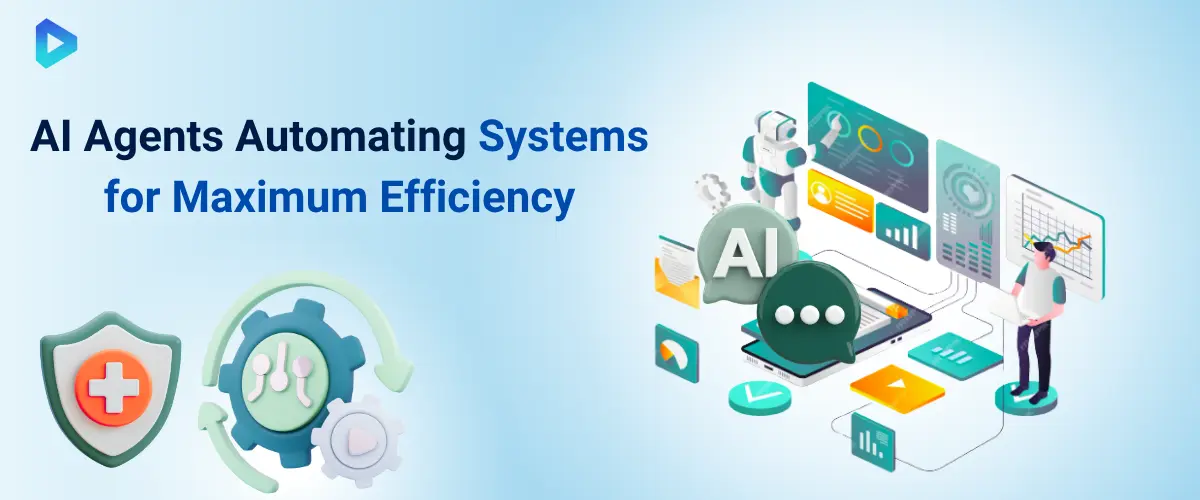 AI isn't just changing healthcare—it's cutting costs in places you might not expect. Let's uncover where these digital helpers are making the biggest financial impact.
AI isn't just changing healthcare—it's cutting costs in places you might not expect. Let's uncover where these digital helpers are making the biggest financial impact.
Cutting Administrative Waste (Up to 30%)
Paperwork is draining your budget more than you realize. AI agents tackle this by:
- Automating data entry - reducing errors by 85%
- Processing insurance claims in minutes instead of days
- Managing patient records without manual filing
"Sunnyvale Medical Group" saved $150,000 in its first year just by letting AI handle forms and documentation. Their staff now spends 70% less time on paperwork and more time with patients.
Reducing No-Shows with Smart Reminders
Empty appointment slots cost the average practice $150 per hour. AI solves this with:
- Personalized reminders via text/email/voice
- Automated rescheduling when conflicts arise
- Predictive analytics identifies likely no-shows
After implementing AI reminders, "City Dental Associates":
✓ Reduced no-shows by 42%
✓ Increased revenue by $18,000/month
✓ Improved patient satisfaction scores
Their front desk manager says, "We're finally filling all those gaps in our schedule."
Lowering Labor Costs Through Task Automation
AI agents are like having extra staff that never call in sick:
| Before AI | With AI |
| Nurses spent 3 hours/day on phone calls | Routine calls handled automatically |
| Billers manually processed 200 claims daily | Claims processed 10x faster |
| Staff worked overtime to complete charts | Overtime costs cut by 65% |
"Riverside Clinic" redirected $90,000 in annual labor costs to hire another provider instead. The best part? Their team is less stressed and more engaged.
Emerging Startups Driving AI Agent Innovation in Healthcare
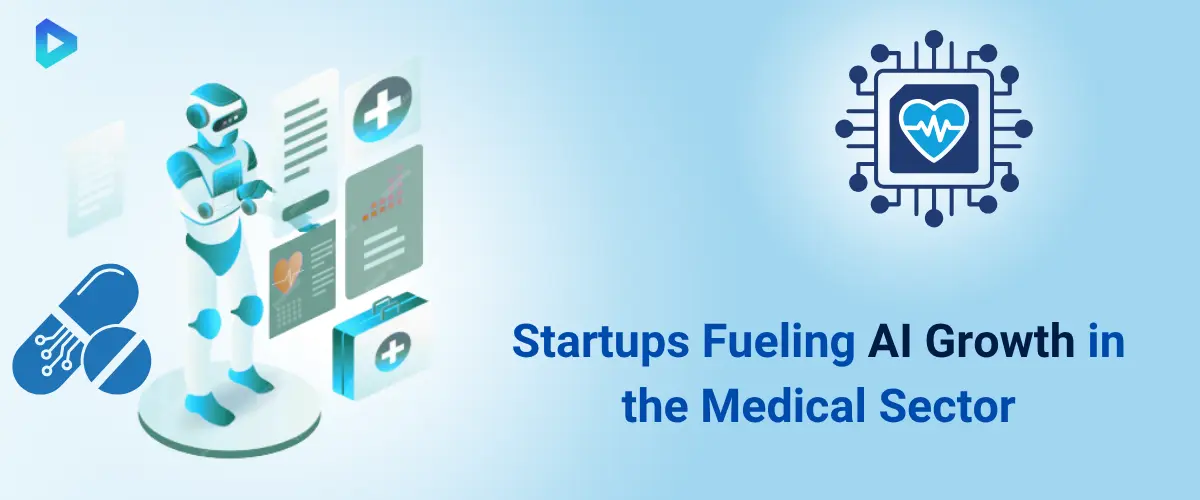 The future of healthcare is being built by bold startups using AI agents to solve our toughest challenges. Let's meet the game-changers.
The future of healthcare is being built by bold startups using AI agents to solve our toughest challenges. Let's meet the game-changers.
Top Startups Leveraging AI Agents for Cost Savings
These innovators are rewriting the rules of healthcare economics:
- Suki.AI - Voice-powered digital assistant cuts documentation time in half
- Olive - Autonomous AI handling $ 4 B+ in annual claims processing
- Hyro - Smart conversational AI reducing call center volumes by 40%
Take "DeepScribe", whose AI medical scribe:
✓ Saves physicians 3 hours daily
✓ Reduces documentation costs by 70%
✓ Maintains 99% accuracy on clinical notes
Cost-Saving Solutions They Offer
These startups deliver tangible financial impact through:
- Automated prior authorization (saving 15 staff hours/week)
- AI-powered supply chain optimization (cutting waste by 30-50%)
- Intelligent staffing algorithms (reducing overtime by 25%)
"Qventus" helped a hospital system:
✔ Save $8.7M annually in operational costs
✔ Reduce ED wait times by 22 minutes
✔ Improve bed turnover by 18%
Their secret? AI that predicts patient flow like weather forecasting.
Successful Case Studies and Real-World Applications
The proof is in the pudding - here's how startups are delivering:
Case 1:
- Startup: Regard (diagnostic AI)
- Result: Identified 14% more sepsis cases early
- Savings: $380K/year per hospital
Case 2:
- Startup: Iterative Health (GI procedure AI)
- Result: 28% faster polyp detection
- Savings: $1.2M annually per practice
Case 3:
- Startup: Hippocratic AI (conversational agent)
- Result: 40% reduction in nurse call volume
- Savings: $650K/year for mid-sized hospital
These aren't lab experiments - they're real solutions working today in hospitals like yours. Which pain point will you solve first?
Artificial Intelligence Agents Examples in Action
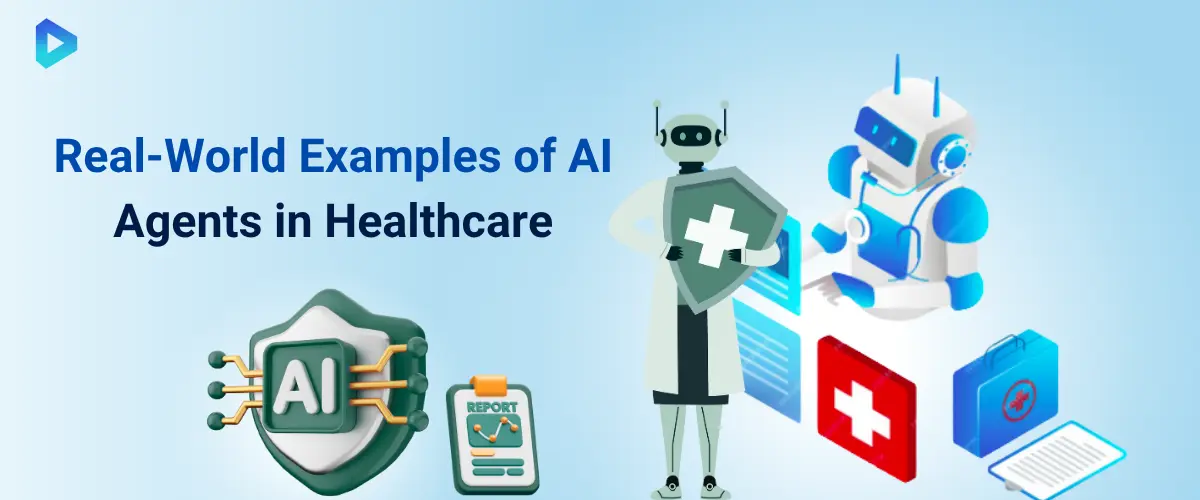 Seeing is believing - these real-world success stories show how AI agents are transforming healthcare right now.
Seeing is believing - these real-world success stories show how AI agents are transforming healthcare right now.
How the Mayo Clinic Reduced Costs by 25%?
The renowned Mayo Clinic achieved staggering savings by implementing AI agents across operations:
- Automated patient scheduling reduced no-shows by 35%
- AI-powered supply chain management cuts waste by $2.8M annually
- Predictive staffing algorithms optimize shift planning
Their secret sauce?
✓ Custom-built AI that learns from 150+ years of medical data
✓ Phased implementation across departments
✓ Continuous optimization based on real outcomes
The results speak for themselves - better care at lower costs, proving even elite institutions benefit from AI assistance.
AI-Powered Diagnostics Saving Time & Money
Cutting-edge diagnostic AI is revolutionizing patient care:
- Radiology: AI reads scans 30% faster with 99% accuracy
- Pathology: Detects cancerous cells human eyes might miss
- Cardiology: Predicts heart attacks 6 months in advance
"Metro Imaging Centers" reported:
✔ 40% faster turnaround on X-ray interpretations
✔ 28% reduction in diagnostic errors
✔ $850K saved annually in malpractice premiums
Their lead radiologist notes: "It's like having a supercharged second opinion on every case."
Small Clinics Winning with Limited Budgets
You don't need Mayo's budget to benefit - these clinics prove it:
Case 1:
- Clinic: Neighborhood Family Practice (3 providers)
- Solution: $99/month AI scheduling assistant
- Result: 22% more patients seen, $72K revenue increase
Case 2:
- Clinic: Rural Diabetes Center
- Solution: AI-powered patient monitoring
- Result: 38% fewer ER visits, saved $120K annually
Case 3:
- Clinic: Community Pediatrics
- Solution: AI billing optimizer
- Result: 92% clean claims rate, 18% faster payments
These examples prove - whether you're a giant hospital or small practice, AI agents deliver real results. What could they do for you?
Conclusion: The AI Revolution in Healthcare is Here
From cutting administrative waste by 30% to reducing no-shows with smart reminders, AI agents are proving indispensable in healthcare. As we've seen through Mayo Clinic's 25% cost reduction and small clinics' impressive ROI, these intelligent systems deliver tangible benefits at every scale.
Whether through reactive agents handling emergencies, diagnostic assistants improving accuracy, or predictive tools optimizing resources, AI is transforming patient care while slashing operational costs. Startups are accelerating this revolution with innovative solutions for scheduling, billing, and inventory management.
The message is clear: healthcare organizations embracing AI agents gain a competitive edge through enhanced efficiency, reduced costs, and improved patient outcomes. The future isn't coming - it's already here in these real-world success stories. Isn't it time your organization joined the movement?
LET’S DISCUSS YOUR IDEA
Call Us: +91-90399-28143, +91 6266163663
Email Us: inquiry@digiprima.com, ashesh@digiprima.com

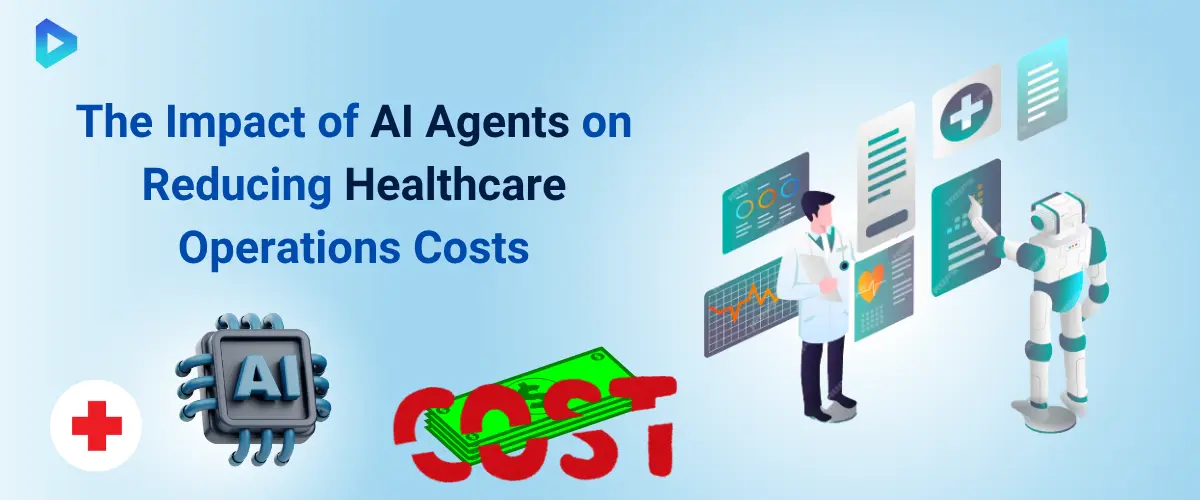

Let's Discuss Your Idea!
Send us your request using the form below.
Contact Info
Our contacts
Thank You!
We will respond to you within 24 hours.